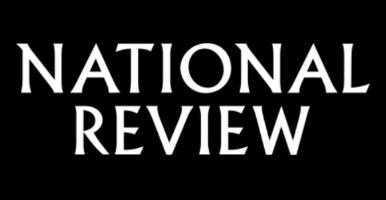This piece originally appeared in National Review on May 18, 2021.
Senate Republican leader Mitch McConnell hammered the first nail into the coffin of the draconian S. 1 legislation on Wednesday, announcing that the Democrats’ 800-plus-page rewrite of voting, speech, and ethics laws would not pass the Senate. With every Republican plus Democrat Joe Manchin opposed to the legislation, the bill increasingly appears as good as dead. Its defeat would be a major victory for the First Amendment and another credit in McConnell’s legacy as the Senate’s premier defender of free political speech.
Surprisingly few elected officials are willing to come to the defense of campaigns and other organized efforts to effect change. Americans celebrate their freedoms to speak and organize into groups, but once an organization achieves success, support for its rights tends to give way to concerns about “influence.” It’s rare to find politicians who support equally the freedom to speak of the NRA and the Brady Campaign, the League of Conservation Voters and the Chamber of Commerce, or pro-life groups and Planned Parenthood.
For over a quarter century, Mitch McConnell has stood as the Senate’s most consistent, articulate, and dogged defender of the First Amendment rights these organizations rely on. Way back in 1994, he engineered the defeat of a bill to fund campaigns with Americans’ tax dollars, a policy that remains at the top of the progressive agenda today and that reappears in S. 1. He has frustrated bad ideas from the right, too, such as in 2006, when he was one of only three Senate Republicans to oppose an amendment to the U.S. Constitution permitting the criminalization of flag-burning. That amendment fell just one vote short.
Perhaps most famously, McConnell led the fight against McCain-Feingold, the 2002 measure that imposed more severe restrictions on advocacy and political parties than any law since the dawn of modern campaign-finance regulation, and then challenged the law in court. While the Supreme Court’s ruling in McConnell v. FEC was a temporary setback for free speech, many of its most significant portions fell not long afterwards. The 2000s saw both the courts and the Federal Election Commission (FEC) take significant strides toward greater respect for the First Amendment rights of political speakers, due in large part to McConnell’s leadership.
S. 1 and its House counterpart, H.R. 1, aim to roll back these advances in one fell swoop. A third of the bill is devoted to new rules and restrictions on the rights of advocacy groups and their supporters, even press outlets. Illustrating the sponsors’ disregard for the First Amendment, some of these proposals have already been ruled unconstitutional. For instance, when I testified before the Senate Rules Committee on S. 1 in March, the bill’s sponsors appeared totally unaware that a federal court had recently struck down a Maryland law requiring online news outlets to build databases of detailed information about their ad buyers. A virtually identical requirement is a featured provision of S. 1 and is very likely to be proposed again as standalone legislation.
Other requirements in the bill would regulate speech about judicial nominees for the first time and expose members of nonprofits that speak to the public about legislation. The bill also contains a taxpayer-financed campaign system that would cost billions each election cycle and would impose a partisan takeover of the historically bipartisan FEC. Since the bill’s inception in 2019, McConnell has made numerous speeches on the Senate floor about its dangers, helping solidify opposition. And while party leaders rarely have time for committee hearings, McConnell attended a markup session last week to directly challenge S. 1’s assault on the First Amendment.
As Senate Democrats plot their next move, the battle shifts temporarily to the judiciary. The Supreme Court is expected to rule next month on a challenge to a California requirement that nonprofits must reveal the identities of their supporters to state officials before soliciting donations in the state. Its decision could clarify the freedom of association that politicians in Congress, and the states, have sought to restrict. McConnell is deep in that fight, too. He filed an amicus curiae brief with the Court supporting the right of Americans to associate privately with one another. In that cause, he is joined by a diverse range of groups across the political spectrum, including liberal organizations such as the ACLU, the NAACP Legal Defense Fund, and the Human Rights Campaign. But he still faces near-universal scorn from the nation’s editorial pages and talking heads.
Freedom of political speech should be a unifying cause in America, but as anyone who has defended it for a living knows, it’s a lot harder where the rubber meets the road. Every speaker is unpopular with someone, and some speakers are unpopular with just about everyone. At a time when free speech is under a seemingly relentless assault, America is fortunate to have a Senate leader who can take the heat and stick to the principles of the First Amendment.














